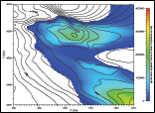 Last week we reported that charges had been filed against a U.S. Army Captain for exporting EoTech holographic rifle sights to Japan without the required export license from the Department of State’s Directorate of Defense Trade Controls. Of particular interest was that the government charged Captain Iishiba for violating the overseas smuggling provisions contained in 18 U.S.C. § 555, rather than under 22 U.S.C. § 2778(c), the criminal provisions of the Arms Export Control Act. We speculated that this might be because the government believed that 18 U.S.C. § 555 had a relaxed scienter requirement such that the government would only have to prove that the export was knowing but not that it was a knowing violation of law.
Last week we reported that charges had been filed against a U.S. Army Captain for exporting EoTech holographic rifle sights to Japan without the required export license from the Department of State’s Directorate of Defense Trade Controls. Of particular interest was that the government charged Captain Iishiba for violating the overseas smuggling provisions contained in 18 U.S.C. § 555, rather than under 22 U.S.C. § 2778(c), the criminal provisions of the Arms Export Control Act. We speculated that this might be because the government believed that 18 U.S.C. § 555 had a relaxed scienter requirement such that the government would only have to prove that the export was knowing but not that it was a knowing violation of law.
On Monday, a plea agreement between Iishiba and the government was entered with the court. Iishiba pleaded guilty to violation of the federal conspiracy statute, 18 U.S.C. § 371 for conspiring to violate the overseas smuggling statute. The plea agreement, however, did not simply indicate that the exports were intentional, but also stated that Iishiba knew that the exports were in violation of law. Specifically, the plea agreement noted that Iishiba was aware that the exports were illegal because he “misidentified the contents of the packages on the export declaration forms.”
Given that the plea agreement seemingly acknowledges that 18 U.S.C. § 555 requires that the export be in knowing violation of law, the question remains as to why Iishiba wasn’t charged under the Arms Export Control Act as opposed to the anti-smuggling provision. The penalties under the two statutes appear to be the same, so that’s not the reason. Any ideas? Let us know your thoughts in the comments section.

 Posted by
Posted by  Category:
Category: 


 The U.S. Attorney for the District of Columbia issued a
The U.S. Attorney for the District of Columbia issued a 
 Nelson S. Galgoul, the Brazilian distributor for software company Engineering Dynamics, who sold the company’s software to customers in Iran was
Nelson S. Galgoul, the Brazilian distributor for software company Engineering Dynamics, who sold the company’s software to customers in Iran was 

